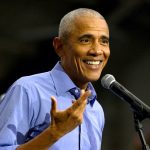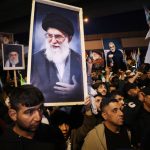In 2018, a prestigious Chinese university announced to the world that it intended to harness the power of artificial intelligence to bolster China’s military. Since then, America’s top AI company has hired dozens of its graduates.
Tsinghua University has gone all in on pursuing AI research and development for China’s People’s Liberation Army. You Zheng, one of the university’s vice presidents, went as far as to declare the institution’s enthusiastic involvement in the Chinese Communist Party’s “military-civil fusion” strategy.
“In accordance with the central government’s requirements, Tsinghua University has closely integrated the national strategy of military-civilian integration with the strategy of building a strong country in artificial intelligence,” You said. “Tsinghua University is entrusted by the Science and Technology Commission of the Military Commission to build a high-end military intelligence laboratory. From the perspective of basic theory and core technology, military intelligence and general artificial intelligence have commonalities. Therefore, Tsinghua University regards the construction of a high-end military intelligence laboratory as a core tool to serve the strategy of building a strong country in artificial intelligence.”
Tsinghua maintains a total of eight major laboratories conducting defense research for the Chinese government.
“Tsinghua University, one of the People’s Republic of China’s most prestigious engineering universities, is deeply embedded in the PRC’s Military Civil Fusion system and maintains deep ties to the PRC’s defense ecosystem and the broader security establishment,” House Select Committee on the CCP Chairman John Moolenaar (R-MI) told the Washington Examiner.
Despite the university’s strong ties to the Chinese military, a Washington Examiner analysis of LinkedIn profiles found that OpenAI employs dozens of graduates and researchers trained by Tsinghua. OpenAI did not respond when asked about what measures it has in place to prevent sensitive information from leaking to China.
“OpenAI has made no bones about the fact that they see themselves as friendly competitors with Elon Musk and that they hope to work with the incoming Trump administration on development of AI economic zones to compete with China,” Capital Research Center Communications Director Sarah Lee told the Washington Examiner. “However, their employment of researchers from a Chinese university known to be interested in using AI to advance Chinese military preparedness certainly raises eyebrows. A charitable read would be that OpenAI is hiring these researchers away from work they might do to help the Chinese and are instead using them to advance U.S. interests in the AI space. But because a non-negligible number of Chinese researchers have been caught stealing technology and research while working for American universities, it would be foolish not to pay close attention to these hires and stay abreast of OpenAI’s goals as they appeal to the incoming administration.”

The majority of the Tsinghua University graduates and researchers working at OpenAI are employed as “technical staff.” OpenAI gives almost all engineers this title, from entry-level programmers to individuals who previously held senior roles at major tech companies. Multiple Tsinghua-educated staffers, however, have explicitly research-oriented roles, and some even work in management positions. At least four of the 26 current OpenAI employees with known links to Tsinghua University researched AI while at the institution.
One Tsinghua-educated OpenAI researcher interned at SenseTime, a Chinese state-controlled AI company allegedly involved with the CCP’s internment of Uyghurs, prior to joining the company. Multiple others worked at Baidu, a tech company that the Chinese government in 2017 designated as one of its “national champion” corporations, directly supporting its AI research and development.
The 26 Tsinghua-linked employees identified by the Washington Examiner likely represent an undercount as some possible matches had their LinkedIn profiles set to private and because not all of OpenAI’s employees maintain active LinkedIn accounts. Many of the employees identified by the Washington Examiner held prior positions at other prominent American tech companies involved in AI research, including Google and Nvidia.
Several former OpenAI employees also attended Tsinghua. Prior to being hired by OpenAI, two former employees worked at DJI and Huawei, corporations that the Department of Defense has determined function as arms of the Chinese military. Another worked at a CCP-funded AI lab while at Tsinghua.
Leopold Aschenbrenner, who at the time was a technical program manager at OpenAI, sent a memo to the firm’s board of directors in 2023 arguing that they weren’t doing enough to protect sensitive technology from foreign adversaries such as China following a major security breach. Aschenbrenner was fired after sending this memo, but OpenAI maintains that his concerns did not lead to his termination and stressed that it disagrees with his characterization of its security.
“The nation’s leading AI labs treat security as an afterthought,” Aschenbrenner wrote in a June essay. “Currently, they’re basically handing the key secrets for AGI to the CCP on a silver platter. Securing the AGI secrets and weights against the state-actor threat will be an immense effort, and we’re not on track.”
Subjecting AI researchers to intense vetting, assistance from the federal government in security oversight, increased physical security at data centers, surveillance of researchers, and improved encryption practices were among Aschenbrenner’s recommendations for reducing the risk of intellectual property theft.
China is actively trying to steal information from OpenAI, with the company announcing in October that a China-based group used a phishing attack in an attempt to take screenshots on employee’s machines and extract their data.
Chinese co-optation isn’t a problem unique to OpenAI. Chinese researchers, for instance, used Meta’s open-source AI model to create software with possible military applications. Microsoft, meanwhile, collaborated with a Chinese military university on AI research.
Chinese nationals working for Western tech companies and stealing sensitive information on behalf of the CCP isn’t a mere hypothetical. The FBI has gone as far as to issue a warning to businesses, universities, and government research facilities to be wary of Chinese espionage.
As recently as March, the Department of Justice indicted a Chinese national for stealing AI trade secrets from Google, where he had been an employee. Attorney General Merrick Garland characterized the espionage as a threat to national security. In 2023, the DOJ charged an ex-Apple employee in a similar case for attempting to steal technology from the firm and flee to China.
Other high-profile instances of Chinese employees engaging in alleged technology theft include former Samsung executives transferring trade secrets for the CCP, a GE employee sending sensitive information related to gas and steam turbines to China, researchers at National Institutes of Health labs receiving funds from Chinese entities to steal intellectual property, and a Chinese employee stealing data from a major chip manufacturer, among many other cases.
Tsinghua itself has allegedly been involved in the transfer of sensitive technical information.
Song-Chun Zhu, a Chinese-born academic, began receiving Pentagon funding for his research while leading an AI center at the University of California, Los Angeles. He continued to receive these funds after he joined Tsinghua as the head of its Institute for Artificial Intelligence and after he became involved with China’s “talent plan,” a CCP scheme that tasks members with stealing technology and sending it east.
CLICK HERE TO READ MORE FROM THE WASHINGTON EXAMINER
The Chinese government plays a direct role in guiding the actions of its universities.
“Unlike American institutions, PRC universities operate subject to the control of the PRC government,” a report from the House Select Committee on the CCP reads. “Tsinghua University has a documented history of serving the PRC’s national security and defense apparatus, including involvement in defense research and alleged cyberattacks targeting various international entities.”
























